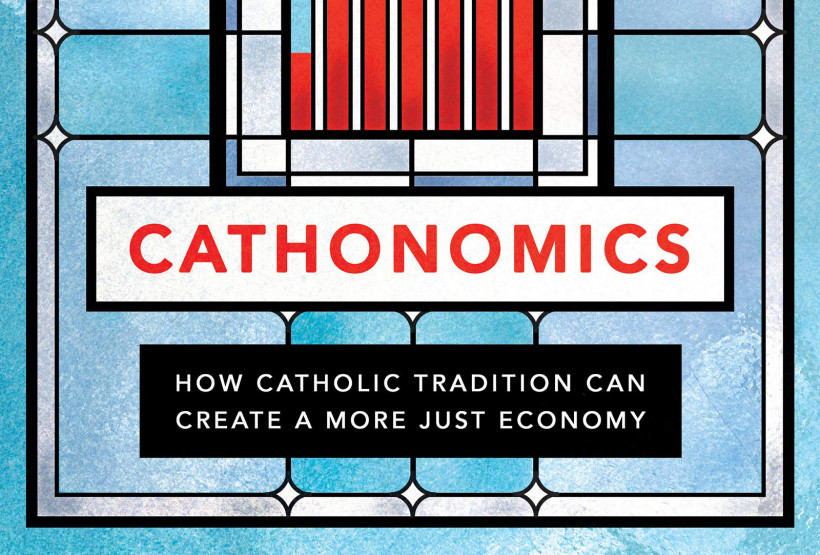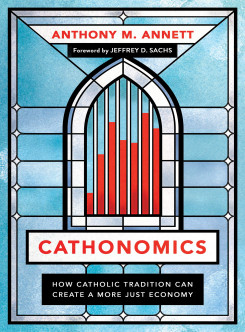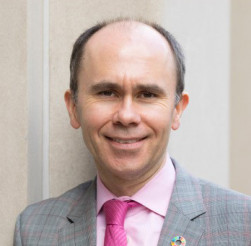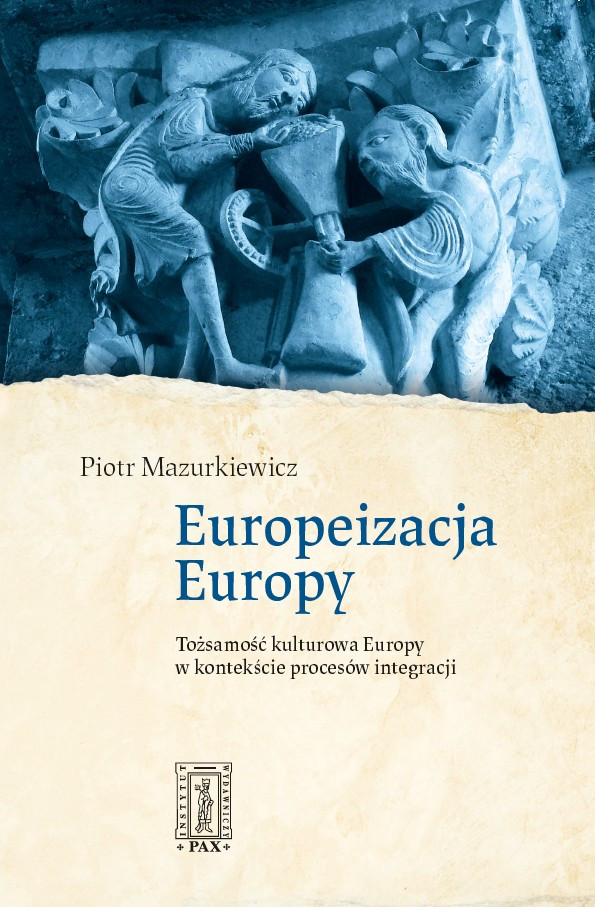
 2026/1/7
2026/1/7
 2023/02/7
Społeczeństwo
2023/02/7
Społeczeństwo

Disappointment with neoclassical economics and the need to widely propagate the Catholic social teaching, which was called the Church’s "best-kept secret" – discussed by Anthony Annett, the author of the book Cathonomics in the interview with Maciej Szepietowski.
 Where did the idea of the need to write the book "Cathonomics" come from?
Where did the idea of the need to write the book "Cathonomics" come from?
I was working at the International Monetary Fund when the global financial crisis broke out in 2008. While most economists regarded this as a technical crisis requiring technical solutions, I saw it more as a moral crisis - driven by greed, self-interest, and a reckless disregard for peoples’s wellbeing, especially the poor. Thus started my disillusionment with the way economics is taught and practiced. The more I looked into it, the more I realized that the ethical underpinnings of neoclassical economics were deeply flawed. They relied on a false version of rationality, as the self-interested “homo economicus” seeks to maximize utility - identified with goods and services purchased on the market, without any limits or moral evaluation. So I started looking into the Church’s social tradition, to the remarkable set of encyclicals beginning with Rerum Novarum in 1891 and going all the way through to Fratelli Tutti in 2020. I discovered that Catholic social teaching offered a viable alternative to the dominant economic paradigm - one that not only leads to healthier economies but is also more deeply rooted in the truths of out human nature.
The title also includes the question: how Catholic tradition can create a more just economy?
The social encyclicals span a long period of time, from 1891 to 2020. They are written in response to particular circumstances and challenges of their times, from the Industrial Revolution all the way through to climate change and sustainable development. They have different voices and different priorities. But nonetheless, I think there is an impressive continuity between them. It is possible to draw a straight line through the encyclicals and distill a set of moral principles. This is what I tried to do in Cathonomics. I identify ten such principles - the common good, integral human development, integral ecology, solidarity, subsidiarity, reciprocity and gratuitousness, the universal destination of goods, the preferential option for the poor, Catholic notions of rights and duties, and Catholic notions of justice. After I do this, I stack up these principles against the corresponding principles of neoclassical economics, and ask: which is better? Not surprisingly, I answer the principles of Cathonomics! To do this, I appeal to a lot of interdisciplinary studies in such areas as psychology, neuroscience, evolutionary biology, and happiness studies. The answer is clear: human beings are worried for cooperation, altruism, and fairness. These are related to the principles of Catholic social teaching.
There are many references to Pope Francis in the book. What is most important in his message on social issues?
I would not have written my book without Pope Francis. He is an inspiration to me in how he teaches and in how he lives his own life. So in one sense, Pope Francis is the hero of Cathonomics. This is because of his strong emphasis on Catholic social teaching, especially in his two encyclicals, Laudato Si’ and Fratelli Tutti. Laudato Si’ is especially significant, as it was timed to influence the gathering of world leaders in 2015 to agree on the Paris Agreement on Climate Change. Laudato Si’ remains the single best moral diagnosis of the environmental crisis, and it heavily influenced the negotiators who agreed on the Paris Agreement. Pope Francis does not shy away from speaking hard truths - that our modern way of life, and our insistence on limitless economic growth, puts our common home in peril. So this is what I see has his major contribution. A second would be his strong condemnation of libertarian and neoliberal economics, which contain problems for Catholic social teaching.
Do modern man and the world need the principles of Catholic social teaching? How to talk about them?
I think we need a twofold strategy here. For Catholics, we can talk about how the principles of Catholic social teaching come from the essential truths of our faith - the doctrines of creation, incarnation, and Trinity. But very few Catholics are even aware of Catholic social teaching - it was been called the Church’s “best-kept secret.” But something so precious shouldn’t remain a secret. We need more Catholics to talk about this, including in the worlds of politics, economics, business, and finance. There is a second audience - people who aren’t Catholic and who perhaps are suspicious of the Church. For them, a different strategy is needed. Here, we should talk directly about the moral principles - like the common good, the universal destination of goods, the preferential option for the poor, or justice. We can appeal to people to accept these principles on their own merits. All that is required is a recognition that the current economic model has failed, and we need to build something better.
Peace is also a challenge today. Behind our eastern border there is a war of aggression caused by Russia. Can Catholic social teachings help bring peace to Ukraine?
Peace is a major theme of Catholic social teaching. During the darkest period of the Cold War, right after the Cuban missile crisis of 1963, Pope John XXIII wrote a wonderful encyclical - Pacem in Terris (Peace on Earth). He sent copies of this encyclical to Washington and Moscow, and it helped being President Kennedy and Premier Khrushchev on a path of peace rather than war. Likewise, in 2020, Pope Francis wrote Fratelli Tutti, his encyclical on universal human fraternity. This is a powerful reflection on how to achieve peace in a world of diversity and division. Its message is especially urgent to help end the war in Ukraine. “Every war leaves our world worse than it was before,” says Pope Francis, “War is a failure of politics and of humanity, a shameful capitulation, a stinging defeat before the forces of evil.” He echoes his predecessors Pope Paul VI and Pope John Paul II when he says “never again war."
***
 Anthony Annett is a senior advisor at the Sustainable Development Solutions Network. He holds a Ph.D. in economics from Columbia University and spent two decades at the International Monetary Fund, including as speechwriter to the Managing Director. He is the author of “Cathonomics: How Catholic Tradition Can Create a More Just Economy.” He is also a member of the College of Fellows of the Dominican School of Philosophy and Theology.
Anthony Annett is a senior advisor at the Sustainable Development Solutions Network. He holds a Ph.D. in economics from Columbia University and spent two decades at the International Monetary Fund, including as speechwriter to the Managing Director. He is the author of “Cathonomics: How Catholic Tradition Can Create a More Just Economy.” He is also a member of the College of Fellows of the Dominican School of Philosophy and Theology.
/mdk
